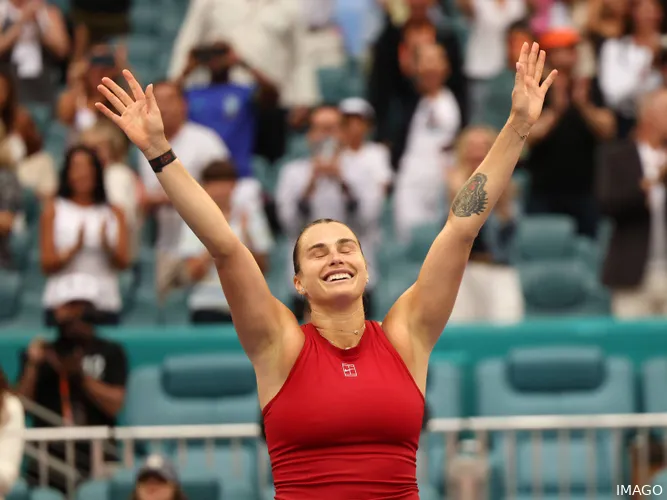
Aryna Sabalenka, the world’s No. 1 tennis player and three-time Grand Slam champion, has thrown her weight behind a growing movement to reform prize money distribution in professional tennis. As she prepares for her campaign at the 2025 Porsche Tennis Grand Prix in Stuttgart, the Belarusian star passionately advocated for a fairer share of tournament revenues, joining a chorus of elite players demanding change. Her bold stance, articulated in a candid press conference, underscores a pivotal moment for the sport, where top names are uniting to address long-standing financial disparities.
Sabalenka’s call for action aligns with a recent initiative led by the Professional Tennis Players Association (PTPA), which saw players like Iga Swiatek, Coco Gauff, and Jessica Pegula sign a letter to Grand Slam organizers, including Craig Tiley (Australian Open), Stéphane Morel (French Open), Sally Bolton (Wimbledon), and Lew Sherr (US Open). The letter demands a higher percentage of tournament revenue for players, highlighting the gap between tennis and other major sports. “I think we deserve a slightly higher percentage,” Sabalenka declared, emphasizing the collective effort. “All of us, the top players, all players, bring the show. I think we deserve to be paid a little more.” Her words reflect a broader sentiment that players, who drive ticket sales and television ratings, are undercompensated relative to the sport’s massive profits.
The issue of prize money has been a simmering concern in tennis, where Grand Slams generate billions in revenue but allocate a smaller percentage to players compared to leagues like the NBA or NHL. Sabalenka pointed out this disparity, noting, “If we compare tennis to other sports, there is a big difference in the percentage we receive compared to the NHL or NBA.” While cautious not to overgeneralize, she firmly believes tournaments, especially Grand Slams, can afford to increase player payouts. Her advocacy builds on earlier comments from March 2025, when she supported a PTPA-led class action lawsuit against the ATP, WTA, ITIA, and ITF, stating, “One thing I would like is to see all players receive a larger percentage of the money they earn at tournaments & especially at Slams.”
Sabalenka’s push for equity extends beyond prize money to broader issues of fairness in tennis. Last August, she spoke out on equal pay, arguing that women’s tennis matches the men’s in entertainment value. “From the TV point of view, from the ticket selling, from every point of view, it’s unfair,” she told reporters, adding, “Of course, guys are always going to be physically stronger than women, but it doesn’t mean that we don’t work as hard.” Her consistent advocacy has positioned her as a leading voice in a sport grappling with its financial model, especially as players face grueling schedules and rising costs.
In Stuttgart, Sabalenka’s focus remains sharp despite her off-court activism. Fresh off a Miami Open title, she faces Anastasia Potapova in her opener, a rematch of a 2023 rout. The WTA 500 event, with its $922,573 prize purse, is a stepping stone to the French Open, where Sabalenka aims to challenge Swiatek’s clay dominance. Her recent walkover in the second round due to Potapova’s injury has given her extra preparation time, which she’s using to refine her game. “I’m ready to play, but I’ll take the extra time to fine-tune things,” she said, showcasing her adaptability.
Sabalenka’s stand is more than a personal crusade—it’s a rallying cry for a fairer future in tennis. As she balances her title chase with her push for change, her influence resonates, inspiring players and fans alike to envision a sport where talent is rewarded equitably. With the clay season unfolding, Sabalenka’s voice, both on and off the court, promises to shape tennis’s evolving landscape.
Leave a Reply